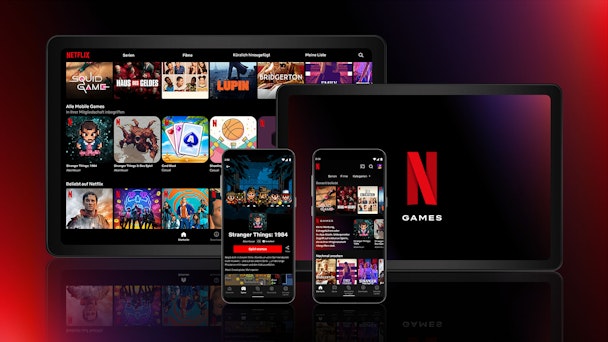Netflix’s gaming push isn’t about gaming, it’s about entertainment
Siddharth Seth, strategist at Superunion, takes a deeper look at Netflix’s left-field gaming acquisitions.

The future opportunity for Netflix lies in creating an ecosystem of entertainment
In January 2019, Netflix’s shareholder report stated: “We compete with (and lose to) Fortnite more than HBO.” Three years later, the streaming service addressed that with the acquisition of Next Games – its second in six months.
Factoring in Amazon’s recent public release of Luna, a cloud gaming service, and Disney’s plans to enter the metaverse, it’s clear that gaming has officially entered the streaming conversation. But why has Netflix made this move now? Will it work? What does this mean for the future?
With stagnating subscriber growth and revenues, Netflix has been forced to look outside its current offering to create new value. At $180bn of revenue in 2021, the gaming industry’s annual revenue is already double that of the movie industry, with over 3 billion global video game consumers. In contrast to Netflix’s current subscriber base of 222 million, this presents a sizeable new target market.
However, according to Netflix, gaming is not about to become an independent driver of revenue any time soon. The company says Netflix is “a one-product company with a bunch of supporting elements,” and games will only serve to “enhance and deepen member engagement.”
When critics of the move suggest that Netflix doesn’t have the technical know-how or distribution to be able to truly achieve this vision, they might be missing the point. This isn’t about winning in gaming; it’s about winning in entertainment. And here, Netflix could be taking a page out of the playbook of one of the most successful entertainers of all time: Walt Disney.
Disney understood before most that a systematic approach was needed when building an entertainment empire, and in 1957 he created his famous flywheel, where the company’s characters in TV and movies fueled merchandise, parks and cruises, and vice versa. This strategy continues to inform the company’s operations today, and bound up within it is the understanding that different aspects of entertainment can collectively create something greater than the sum of its parts.
Netflix already launched the Netflix shop last year, and a foray into gaming already has powerful proofs of concept. Netflix’s library currently offers multiple titles based on video games, from The Witcher and Castlevania to Cuphead and Arcane, with many achieving widespread cultural success. Last year, in the wake of the success of Squid Game, copycat apps popped up on mobile app stores, garnering well over 1m downloads. Merging different streams of entertainment doesn’t need to involve gaming either – viewership of F1 grew by 20% in 2020, with the release of Drive to Survive, the F1 docuseries, cited as a key driver of growth.
The future opportunity for Netflix lies in creating an ecosystem of entertainment, where the lines between TV and gaming become more and more blurred. Each one could take from traits that inform the other. For example, Netflix could release new levels or game worlds every week, like new episodes. Games and shows could be released at the same time, where progress in the game reveals downloadable content about the show and its characters. Gaming could be the catalyst to unlock unprecedented value for Netflix’s customers and its shareholders.
As Netflix makes this pivot to gaming, its biggest competitors are sure to take notice. HBO and Disney have a much deeper legacy and library of content to draw on, which poses a significant threat to Netflix’s planned expansion. This is where effective branding comes in and can serve as a key differentiator in the battle for eyeballs and thumbs. Understanding how to carve out a niche will be vital. It’s safe to assume that Disney has younger audiences’ loyalty, as well as the blockbuster power of the Star Wars and Marvel franchises. Perhaps in Game of Thrones and Westworld, HBO has the potential to create expansive MMORPGs (massively multiplayer online role-playing games)? Doesn’t HBO just feel like a producer of legendary RPGs (role-playing games)?
Netflix’s niche is harder to pin down. Mobile gaming, the space where Netflix has made its initial acquisitions, suggests perhaps a provider of more throwaway entertainment, and quantity being more important than quality (and some might argue that’s already happening with its TV). But the success of some of Netflix’s originals, such as Stranger Things, indicates a broader opportunity might await them. Think back to Walt Disney’s flywheel – his system of interconnected entertainment – and perhaps it all begins to make sense. Perhaps we should be imagining Netflixworld, with queues of people for the Stranger Things ride holding their Netflix Princess Margaret action figures and streaming the new Netflix Money Heist mobile game directly to their phones.
It seems that in the short-term, gaming might well be the new battleground in the streaming wars, but longer-term, it is just the start of a battle to own a much broader segment of the whole entertainment market itself.
